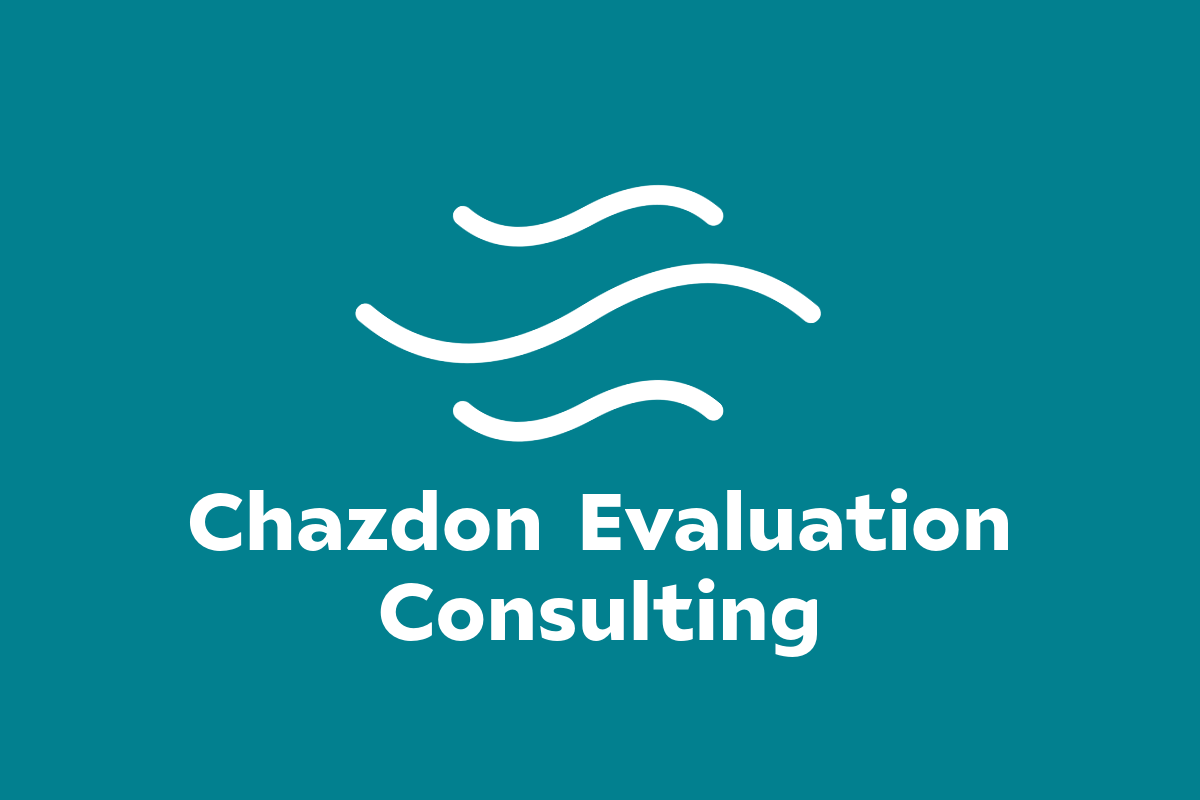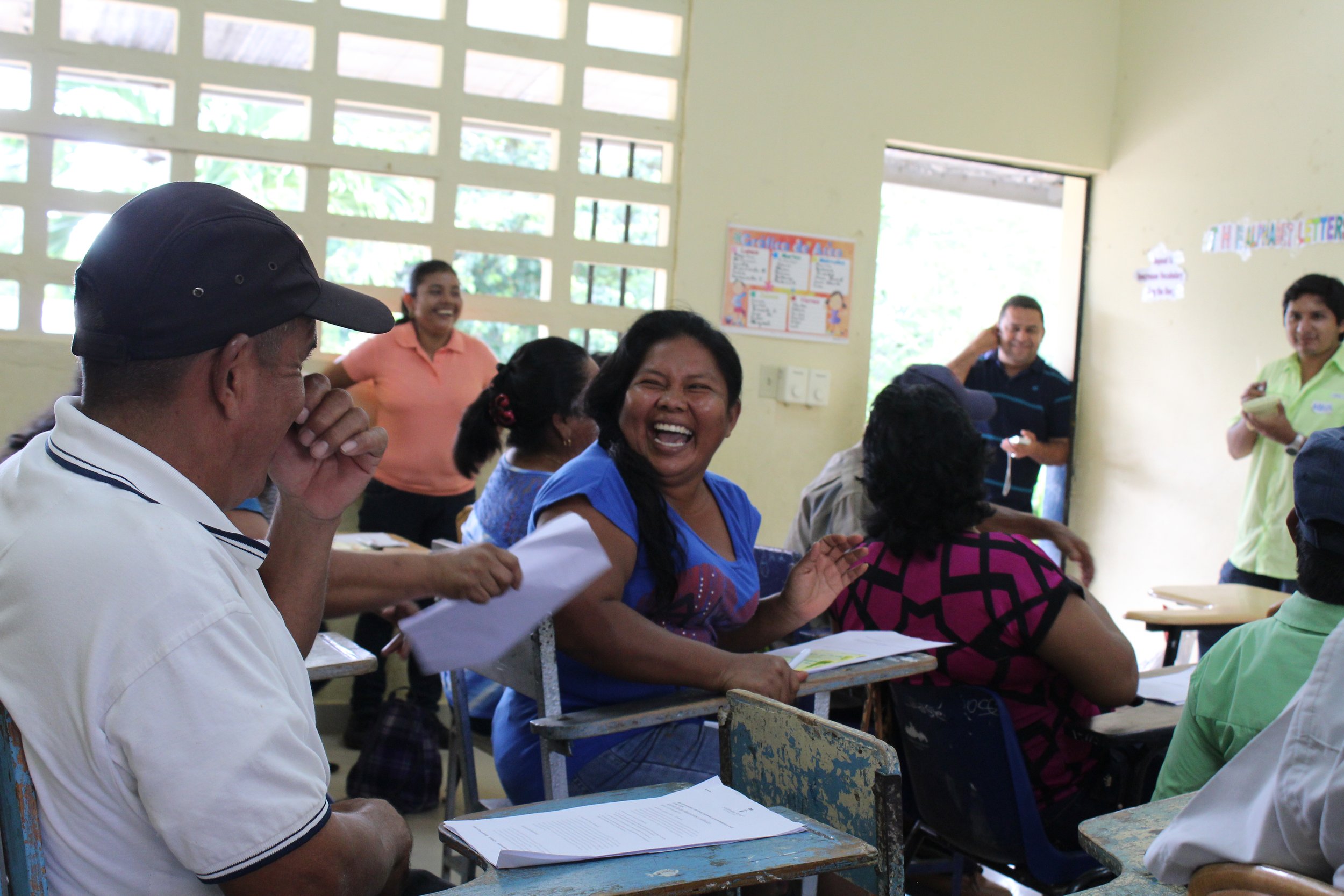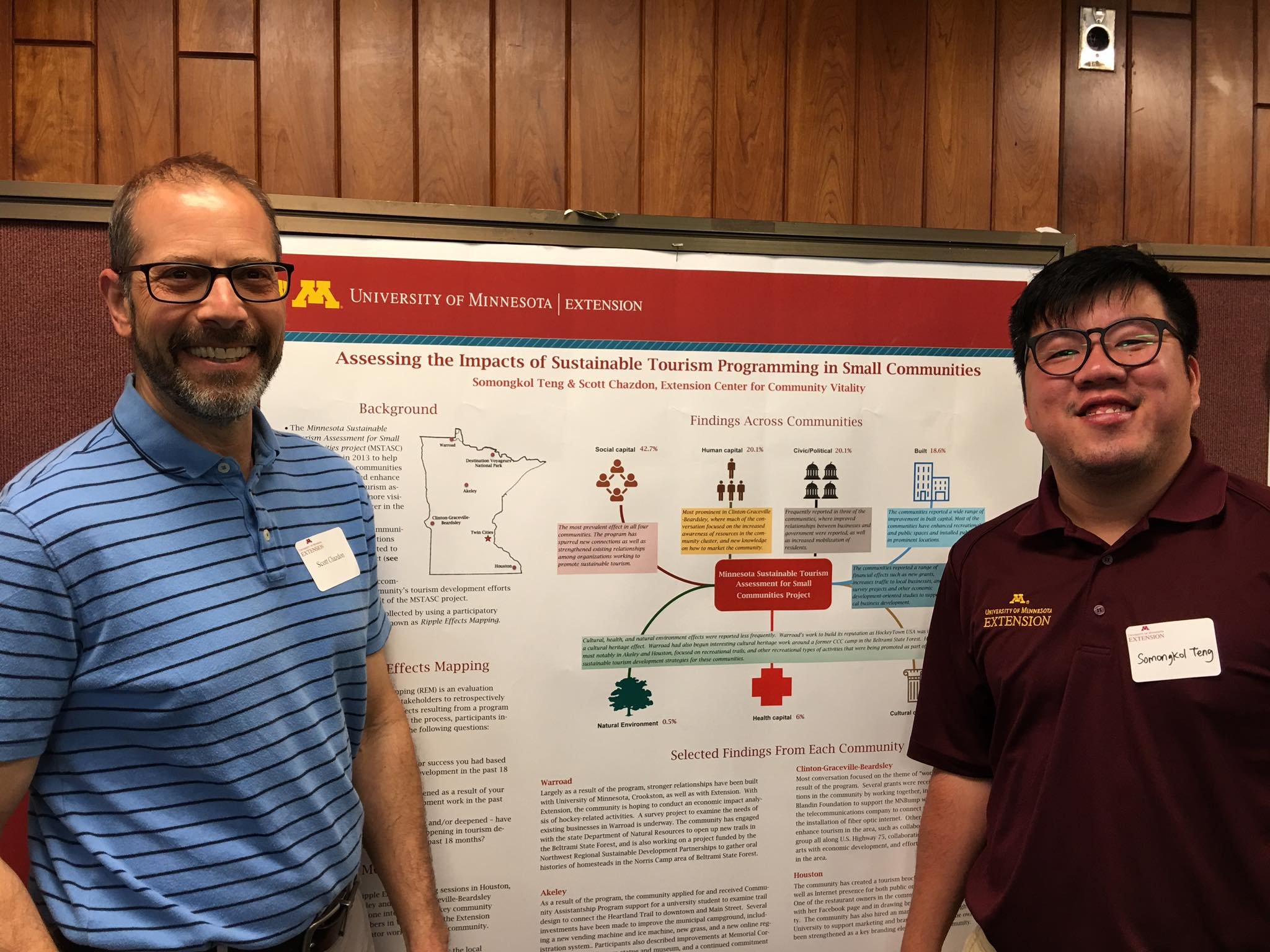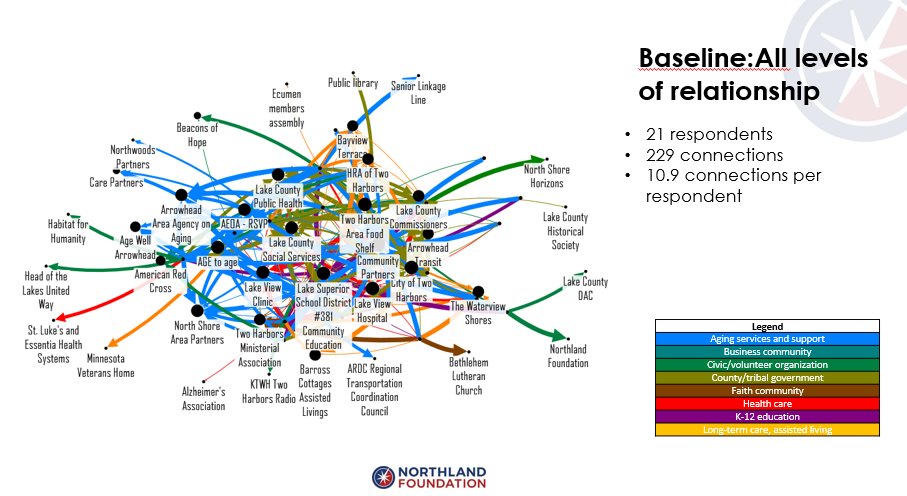My Services
I have provided evaluation consulting for organizations across the country, including the Northwest Portland Area Indian Health Board, University of Michigan Department of Social Work, the Kresge Foundation, the Stanford University Center for Population Health Sciences, the Blandin Foundation, the Bush Foundation, Blue Cross Blue Shield Foundation of Minnesota, and Allina Health.
I offer a range of consulting services from conducting evaluation projects on my own to training and coaching in order to build organizational evaluation capacity.
Ripple Effects Mapping (REM)
REM Training and Coaching
Social Network Analysis
Community Readiness Assessment
Ripple Effects Mapping (REM)
Ripple Effects Mapping is a qualitative approach that relies on interactive group interviewing and reflection. REM engages program and community stakeholders to retrospectively and visually map the chain of effects resulting from a program or complex collaboration. It employs elements of Appreciative Inquiry, mind mapping, and qualitative data analysis. It is particularly useful for complex initiatives because it provides an opportunity to engage key stakeholders in the evaluation process and typically re-energizes participants and stakeholders to continue their community development, organizing, or systems change work.
Because participants use their own words to describe their experiences without the facilitator making a priori assumptions, in-depth knowledge is gained about the participants’ backgrounds and programmatic experiences—information that can be missed from closed-ended or quantitative methods. Other practical implications include uncovering new and unanticipated information about the effects of a program, which is especially useful for evaluations with a formative focus on program improvement, or for newer or innovative programs that are employing a developmental evaluation approach. A greater cultural understanding of phenomena is also gained when participants from varying backgrounds share their unique interpretations and perspectives.
I led a team of several Ripple Effects Mapping colleagues to publish A Field Guide to Ripple Effects Mapping in 2017. This book has further generated interest in REM around the world.
REM Training and Coaching
Since publication of A Field Guide to Ripple Effects Mapping, many organizations have asked me to provide deeper training and coaching as they build their organizational capacity to use this method.
I offer the following training modules, which can be delivered in person or online:
Ripple Effects Mapping overview (one hour)
Ripple Effects Mapping overview with simulation (two hours)
Deep dive sessions for REM facilitators: (four hours total)
Session 1: REM planning and recruiting (one hour)
Session 2: REM session facilitation (one hour)
Session 3: REM data analysis (one hour)
Session 4: REM reporting (one hour)
Coaching (priced per hour)
Social Network Analysis (SNA)
SNA allows us to better document and understand the patterns of relationships that connect social actors, whether they are individuals or groups. The data, usually collected with a survey, is analyzed and diagrammed using specialized software. SNA diagrams, often called sociograms, yield all sorts of useful information about core actors in a network, cliques among actors, and actors on the periphery. The software also make it possible to calculate metrics about network strength that can be useful for comparison when an analysis is conducted at more than one point in time.
I have conducted several SNA projects with clients and have also trained organizational staff on the basics of one of the SNA analysis software tools - NodeXL.
Community Readiness Assessment
Community readiness is the degree to which a community is ready to take action on an issue. An understanding of community readiness allows you to tailor an intervention or strategy to what the community is willing to accept and support. By taking small steps forward – by setting goals that necessitate a stretch for people, but not so great a stretch as to be beyond their current ability and understanding of the issue – you can make steady progress.
I have led teams to develop community readiness assessments addressing several issues including rural community equity and inclusion, nutrition and healthy living, and nitrogen fertilizer management to promote water quality. I lead teams through a review of existing tools to identify the dimensions of readiness they want to measure, and then collaboratively develop and pilot assessment tools. The best assessments include both closed-ended and open-ended questions.



